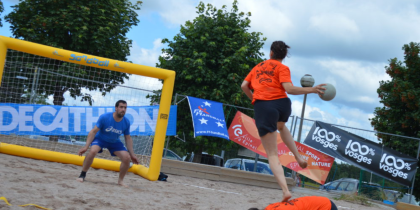
The Ultra World of Endurance Sports
Endurance sports like marathon running, long-distance cycling, triathlons, and open-water swimming push human capabilities to incredible limits. They demand not just high physical performance but mental strength and strategic training over months or even years.
Endurance athletes often balance on a thin line between achieving their goals and risking injuries, heart strain, and extreme fatigue. Proper endurance training, understanding physiological limits, and having the right mindset are critical—as is the peace of mind that comes from having strong insurance coverage.
Let’s explore how endurance athletes master their body, mind, and heart to excel in sports that challenge the very definition of human potential.
Health vs. Risk: Finding the Balance
Endurance events require sustained aerobic and anaerobic effort, putting intense strain on the cardiovascular system, muscle fibres, and metabolism. Regular training improves oxygen capacity and heart rate efficiency, but overreaching can lead to fatigue, overtraining syndrome, or serious cardiac issues.
Best Practices for Health in Endurance Sports:
- Maintain a “health-first” mindset, not just “performance-first”
- Monitor heart rate variability and recovery times
- Incorporate rest periods and active recovery weeks
- Get regular medical checks to monitor heart and muscle health
Training smart ensures endurance athletes stay in the game for years—not just one season.
Managing Fear and Risk During Long Races
Fear in endurance sports is natural. It’s an adaptive response to perceived danger, helping athletes stay alert. However, unmanaged fear can lead to unnecessary risk-taking or chronic stress, which negatively impacts performance and immune function.
Tips for Managing Fear:
- Acknowledge fear as part of the process
- Differentiate between rational and irrational fears
- Use mental preparation techniques (visualisation, mindfulness)
- Build confidence through experience and gradual challenges
Long-distance endurance events like the Marathon des Sables or ultra-triathlons demand deep emotional awareness. Top athletes often work with mental coaches to optimise performance under pressure.
Gradual Adaptation: The Secret to Injury Prevention
One of the biggest factors for success in endurance sports is allowing the body enough time to adapt. High training intensity without progressive overload leads to overuse injuries, muscle damage, and metabolic strain.
Effective Endurance Training Strategies:
- Build volume slowly (no more than 10% increase per week)
- Focus on lactate threshold development for better endurance performance
- Mix aerobic base-building sessions with high-intensity intervals
- Periodise training around peak events
Respecting physiological signals like early fatigue, soreness, or elevated resting heart rate can prevent major setbacks.
Hyper-Awareness: Reading Your Body
Top endurance athletes develop “hyper-awareness” of their physical state. They can detect small shifts in energy levels, heart rate, muscle tension, or hydration status before they become critical.
This skill helps athletes make smart in-race decisions about pacing, nutrition, or when to stop to avoid injury.
Building Hyper-Awareness:
- Use heart rate monitors and power meters for objective feedback
- Keep a training log noting sleep, mood, soreness, and performance
- Learn body signals indicating dehydration, glycogen depletion, or heat stress
Endurance Performance: The Role of Resilience
Performance in endurance sports is not just about physical fitness—it’s about resilience. Race days rarely go perfectly: weather changes, equipment failures, stomach issues, or mental fatigue can all impact outcomes.
Building Resilience for Endurance Events:
- Train for mental flexibility (expect the unexpected)
- Practise racing under different conditions
- Focus on “process goals” (like managing pacing) rather than just results
Elite endurance athletes often succeed because they adapt better, not because they suffer less.
Exploring the Physical and Mental Frontiers
Endurance sports like ultra-running, Ironman triathlons, and long-distance cycling events are journeys into the unknown. Every marathon or Ironman finish line crossed marks not just a physical achievement but a mental victory—proof of discipline, patience, and inner strength.
Long courses test:
- Aerobic and anaerobic capacity
- Psychological tolerance for discomfort
- Efficient energy metabolism and fat utilisation
Endurance is the art of strategic suffering.
Protect Your Endurance Journey With Insurance
Whether you’re cycling hundreds of miles, running marathons, or swimming open-water races, accidents happen. Injuries, accidents abroad, or health incidents during events can have major financial and personal consequences.
Having specialist sports insurance means you can:
- Cover medical expenses worldwide
- Access repatriation and emergency transport
- Protect against income loss from injury
- Insure personal equipment like bikes
- Benefit from liability cover in case you cause injury or property damage
Train and race with peace of mind.
Discover more about endurance sports insurance and get your free quote online today with Assure Ton Sport—trusted by endurance athletes across Europe!
Ready to take your endurance goals to the next level?
Contact us today and get the insurance protection your passion deserves!



